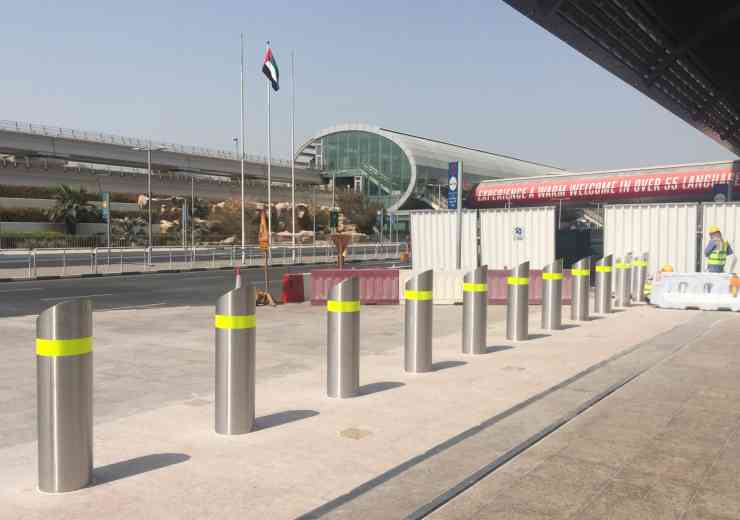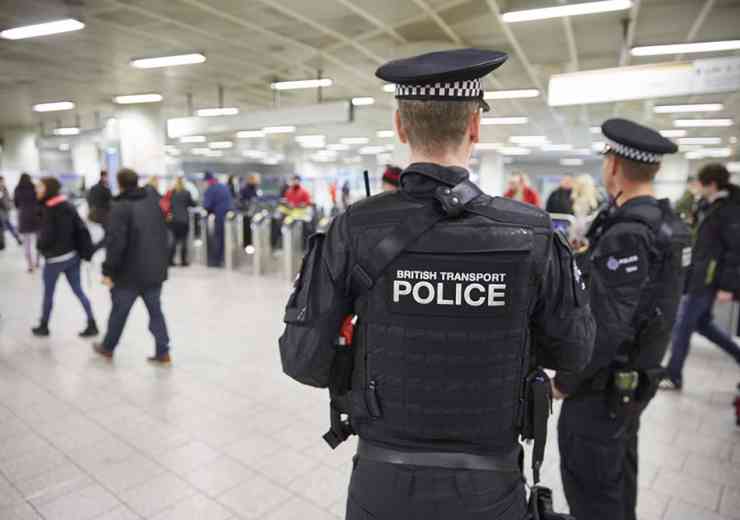
Commercial vehicles: the new weapon of choice in terror attacks?
Vehicles were used in three of the five terror attacks that took place in London and Manchester in 2017. To tackle this worrying trend, the Department for Transport (DfT) has released guidance for transport operators to prevent their vehicles being used as a weapon
In the last five years, commercial vehicles have become one of the deadliest weapons used by terrorists across Europe.
In 2017, vehicles were used in three of the five attacks which took place in London and Manchester. It is therefore vital that transport businesses adopt a responsible approach to security.
To support transport operators to mitigate the threat of their vehicles being used in an attack, the DfT has worked alongside security experts from Counter Terrorism Policing to create a guidance document.
The guidance outlines the steps organisations can take to prevent their vehicles being used in a terror attack and covers all aspects of vehicle and site security, including a checklist for vehicle security for commercial drivers.
What is a Vehicle as A Weapon attack?
A vehicle can be used as a weapon intentionally to injure and kill people. This is referred to as a ‘vehicle as a weapon (VAW) attack’. VAW is a low complexity methodology requiring little or no training. With a plentiful source of vehicles on UK roads, it is therefore within the capability of individuals to try and steal one and use it in an attack.
Crowded public spaces are targeted by this type of attack. There are a range of online terrorist and extremist materials aimed at inspiring terrorists to carry out VAW attacks and previous attacks have encouraged copycats, who now see VAW as a successful means to cause terror. Lorries and vans pose an increased risk if used in VAW attacks because of their size, profile and weight, all of which increase the potential impact.
Embedding a security culture
Being vigilant and reporting suspicious behaviour increases the likelihood that people with hostile intentions will be detected or deterred. An organisation therefore needs to have procedures in place for reporting any unusual behaviour.
The National Counter Terrorism Policing (NCTPHQ) Action Counters Terrorism (ACT) campaign urges people to report anything that could suggest a terrorist threat to the UK. Suspicious activity can be reported to the police by calling confidentially on 0800 789 321 or through the campaign page: https://act.campaign.gov.uk.
Security responsibilities should be allocated to a staff member who has appropriate authority to make security related decisions and implement them.
The risks posed by an organisation's vehicle operations should be assessed with the involvement of customers, shippers, freight forwarders, carriers, security service providers, and insurance experts, if possible. Identify possible solutions that will prevent one of your vehicles being used in an attack and get feedback from drivers. Any security plans should be reviewed regularly.
Countering the insider threat
An insider is a person who exploits, or has the intention to exploit, their legitimate access to an organisation’s assets for unauthorised purposes.
Insiders with access to an organisation's processes and assets can be a source of threat. An insider could be a full time or part-time employee, a contractor or even a business partner. They could deliberately join an organisation to gain access to its assets to mount an attack, or they may be triggered to act at some point during their employment.
Consideration should be given to using British Standard 7858 (or equivalent) for security screening of employees. This standard involves conducting basic identity, financial, employment and criminal records checks.
The guidance also recommends that a driver’s references and previous employment history (minimum of five years) is checked and that the employer speaks to previous employers. It suggests informing applicants that false details on application forms may lead to dismissal.
Driving licences should be checked for validity and then at six-monthly intervals afterwards. Drivers should inform employers of any changes to their licence. Check if the applicant has any prosecutions pending or is waiting for sentencing by a court. For agency drivers, ensure that the agency has carried out all of these checks including criminal records checks. What's more, only reputable recruitment agencies that are affiliated with a recognised UK trade organisation should be used.
















